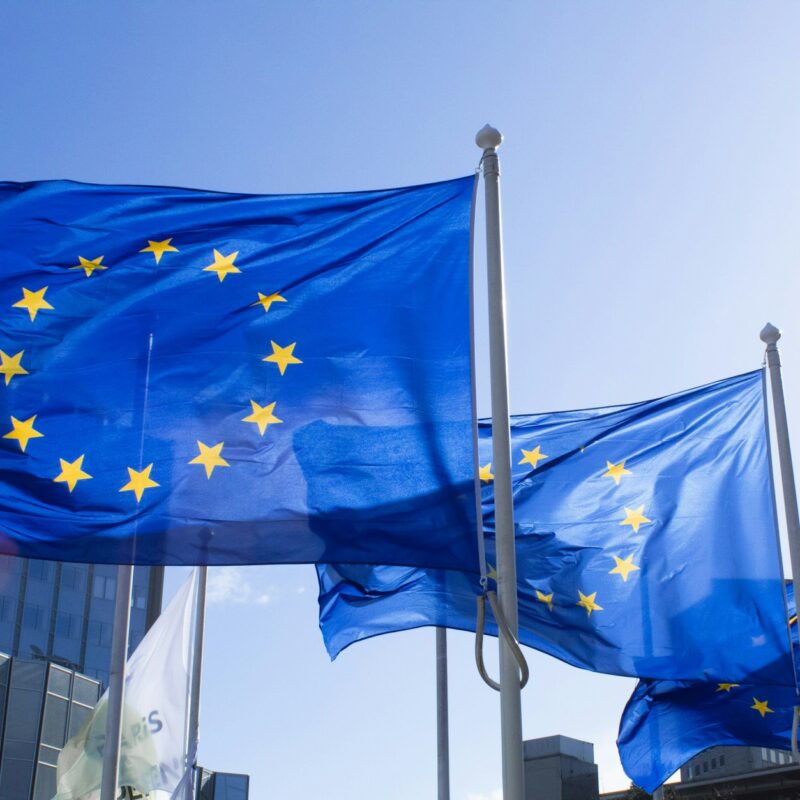The Future of Agriculture in the UE

The President of the European Commission, Ursula von der Leyen, gave an update on the group’s work on the Strategic Dialogue on the Future of EU Agriculture on 4 September.
Ursula von der Leyen: „There is hardly a sector more important to our continent than agriculture. It is, as we all know, vital to our health. It is strategic to our economy and our self-sufficiency. But we know that our farmers are confronted with many and mounting challenges, from the very tough global competition to the devastating effects of climate change. As we know, Europe is the fastest-warming continent. We know and experience all the extreme weather events that are becoming increasingly frequent, whether it is heat waves and droughts or floods, hailstorms, heavy rain. But we also observe an increasing amount of depleted and polluted soils. And these soils are less fertile and less flood resistant, and they are diminished in their ability to hold both water but also carbon. We know that in some parts of Europe, water availability is already a severe problem. The farming community is amongst the first victims of these crises. But at the same time, the sector holds many solutions to mitigate or sometimes even reverse the effects. And we are not starting from scratch. As you know, we have done important progress towards more sustainability. That has been done by all the sectors and actors in the sectors, but we all know that more ambitious steps have to be taken. And therefore, I am very happy that the Strategic Dialogue on the Future of Agriculture in the European Union is presenting consensual – consensual, that is important – solutions. You will certainly speak a lot about the way forward. But we all know already today that we must do more – and we will do more – to protect our farmers and to make the agri-food system more resilient, more competitive but most importantly also more sustainable.”
What next?
Ursula von der Leyen: „My team and I will of course carefully study these recommendations in the report. They will feed into a vision for agriculture and food. And I will present this roadmap within the first 100 days of the next mandate. There are already some key objectives outlined in my Political Guidelines. First, we need to ensure fair and sufficient incomes for our farmers. Because thanks to the European farmers, Europe has the best quality food in the world. So they must get the livelihood they deserve. Yes, we have the European Common Agricultural Policy – the CAP – that already provides EUR 300 billion – and this until 2027. In parallel, we must have a good look at the agri-food value chain, because we see that too often, farmers are the weakest link in this value chain. Some are forced to systematically sell their products below production costs, and that cannot be. Therefore, in March this year, the Commission put forward recommendations to improve farmers’ negotiating power. And I think we should, together, continue building a fairer system.
Second, very important, we must support an agriculture that works for and with nature. We know this can only be done with an efficient system of rewards and incentives. As I said, farmers are among the first to fundamentally feel the effects of climate and environmental changes and crises. At the same time, unsustainable agricultural structures and practices themselves contribute and fuel the climate crisis. But on the other hand, the agriculture sector holds many solutions to mitigate and to adapt to climate crises. So sustainable agriculture is therefore an extremely important instrument – you have been working a lot on it. And services for a healthy nature have to be rewarded. Because only if farmers can live off their land will they invest in more sustainable practices. And only if we achieve our climate and environmental goals together will farmers be able to continue making a living. So we share the same goal: protecting nature but also creating sustainable prosperity for our farmers.
And finally, we must continue to cut red tape, especially for small and family farms. Earlier this year, we introduced measures to free them from controls and penalties linked to the CAP. So we want to continue down this path, together with our Member States. And we must promote a competitive European food value chain. For this we must seize all the opportunities offered by the abundance of innovation in this field – from precision farming to drones to new breeding techniques. And not only in large-scale farms but also in cooperatives and in the many SMEs of the sector.”
The Green REV Institute and Future Food 4 Climate will be actively involved in this process.
Photo: Unsplash

